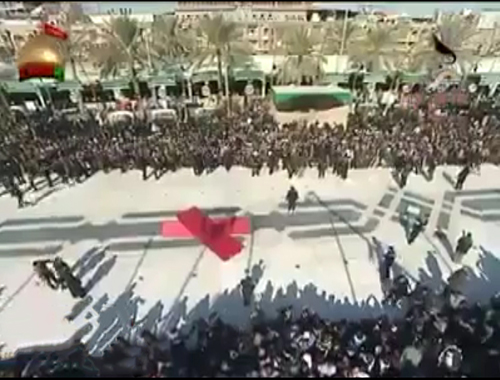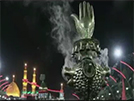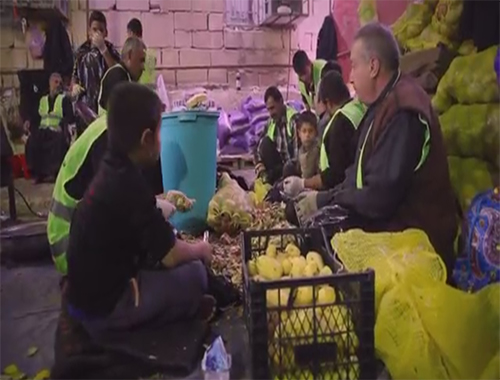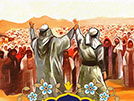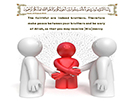Occasions when Ghiība is Permitted
- Details
- Hits: 2338
Occasions when Ghiība is Permitted
Scholars permit Ghiība in some cases. We shall mention the opinion of Shaykh in this matter as given in his book Makasib Muhrima.
(1) Ghiība of a person whose defect is not hidden. It is known to all. Like the one who roams the streets with a bottle of wine on his lips.
“One who sins openly is not worthy of respect and his GhÄ«ba is not HarÄm.
(Makasib Muhrima page 27, Vol. 4)
A tradition also says,
“(The GhiÄ«ba of) one who has thrown away the robe of shame (and commits sins openly) is not GhiÄ«ba.
(Makasib Muhrima page 27 Vol. 4)
It should be noted that, Ghiība is allowed only for those sins that are committed openly. There is no proof of the legality of Ghiība for the sins committed secretly, though according to the Shaykh, if his visible sins are more severe than his concealed defects, there is no harm in relating them. However, one should abstain from it as a matter of precaution.
GhiÄ«ba is allowed only in the case of a person who has himself announced his sins openly. But if he presents an excuse for this action, his GhiÄ«ba is not allowed. For example, he says, ‘I drink wine for medicinal purpose and I am in Taqlid of a person who allows it.’ Or one who eats during daytime in the month of Ramadhan says that he is sick or on a journey, or he may be having other acceptable reason. Similarly in the case of one who oppresses or cooperates with the oppressors, and then justifies his act. However, it should not be a blatant act. As a matter of precaution, GhiÄ«ba should not be done about a person who commits sins openly but in an alien town or locality.
(2) If an oppressed person complains about the oppressor and mentions his acts of injustice, it is not Ghiība. As the Almighty Allah (S.w.T.) says,
“And whoever defends himself after his being oppressed these it is against whom there is no way (to blame). The way (to blame) is only against those who oppress into and revolt in the earth unjustly, these shall have a painful punishment.”
(Surah Ash-ShÅ«rÄ 42: 41-42)
In Surah an-NisÄ’, the Almighty Allah (S.w.T.) Says,
“Allah does not love the public utterance of hurtful speech unless (it be) by one to whom injustice has been done.”
(Surah an-NisÄ’ 4: 148)
Precaution demands that we must complain of injustice to someone who is capable of redressing it. It is not permitted to complain to someone who is not capable of getting justice for you.
(3) Advice to those who ask for it. When a Muslim approaches for advice in a particular deal that he intends to enter with a person and the person approached knows about a defect of that person which, if he does not reveal the person who enters into contract will suffer loss and have problems; in this case there is no harm in passing such information.
One must pay attention to two things in this case: The defect should be mentioned only if there is harm in not informing about it. If the defamation or insult caused by revealing the defect is more serious than the loss caused to the other person, one should abstain from GhiÄ«ba. Secondly, GhiÄ«ba is allowed only if by doing so the person is warned. If he can be cautioned without doing GhiÄ«ba, GhiÄ«ba is not allowed. For example he says, “I don’t see benefit in this matter” and the person who sought advice obeys him. Then one should stop at this.
(4) GhiÄ«ba is allowed with the intention of Nahy Anil Munkar. For example you see a Muslim prone to an evil way and think that by doing GhiÄ«ba he’ll give it up. GhiÄ«ba is allowed in this case provided one is sure that it will have the desired effect. If there is doubt that the person has already given it up his GhiÄ«ba is not permitted. As in the previous case, we should take into consideration the harm of doing his GhiÄ«ba in comparison to the harm caused by his bad deed. That is, if the exposure of this Muslim is more serious than the sin he his committing, his GhiÄ«ba is not allowed, even if we are sure that by doing his GhiÄ«ba he would give up the act.

